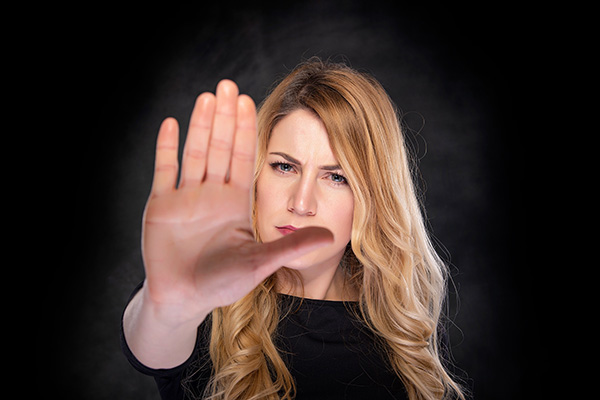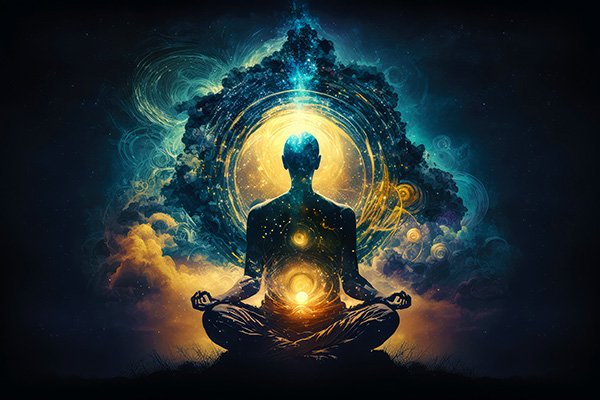intuition
The Mystical Purpose Of Daydreaming
 In school, I was often reprimanded for daydreaming. My eyes would glaze over as I gazed into the distance, lost in a magical world of my own.
In school, I was often reprimanded for daydreaming. My eyes would glaze over as I gazed into the distance, lost in a magical world of my own.
It amused the other children in the class and clearly frustrated my teachers, who mistook it for inattention or laziness, but even then I intuitively knew there was something valuable in my moments of mental wandering.
Little did I know that my frequent daydreaming opened doors not only to creativity and problem-solving, but also to spiritual connection, higher consciousness, and most importantly, manifestation.
Research has shown that daydreamers actually experience increased brain activity. Contrary to the common misconception that daydreaming equals a blank or stagnant mind, studies show that when we allow our minds to wander, we engage the problem-solving and creative areas of the brain.
Neurologically speaking, daydreaming activates the default mode network (DMN), a system in the brain that lights up when we are not focused on external tasks. The DMN connects us to deeper thoughts, memories, and emotions, often leading to sudden insights or realizations.
But what science describes as a purely neurological phenomenon is, in spirituality and metaphysics, a gateway to the higher self and beyond. When the mind wanders aimlessly, we enter an intermediate mental space — a threshold between the conscious and the subconscious. This is where creativity, intuition, psychic impressions, and spiritual connection are most accessible while awake.
What It Means To Align With Your Higher Self
 The term “higher self” is a term often used in spirituality, metaphysics, and psychic work, but it can be very confusing. What exactly is it? Is it our subconscious, our conscience, our alter ego, our soul, our spirit?
The term “higher self” is a term often used in spirituality, metaphysics, and psychic work, but it can be very confusing. What exactly is it? Is it our subconscious, our conscience, our alter ego, our soul, our spirit?
While these aspects are all related in some way to the higher self, it’s best understood as the most enlightened and transcendent part of our being.
Our soul or spirit is the conscious, evolving part of us in this lifetime, while the higher self is our soul’s highest potential. It is our divine blueprint and our eternal spiritual essence that exists beyond our physical self in the non-physical. It’s the timeless, eternal part of us that embodies the divine essence of who we are.
While the incarnated aspect of soul is the conscious experiencer throughout our lifetime, the higher self is the permanent aspect of the soul that exists in the higher realms.
The higher self is not a separate personality or individual being, but a deeply integrated, higher foundation of our soul. It is like a spiritual archive of all the wisdom, experiences and lessons accumulated from our past lives, as well as our soul contracts and higher purpose for this lifetime, serving as a blueprint for our soul’s evolution and life journey. It reflects the highest aspects of our being.
When we connect with our higher self, we align with this elevated aspect of who we truly are and what we intend to accomplish in this life and the next. This connection gives us clarity and insight into our soul’s path. It allows us to see life from a higher perspective and guides us to make choices that promote personal and spiritual growth. Connecting with the higher self helps us navigate life’s challenges with greater ease and purpose, allowing our soul to evolve and expand.
The Self-Affirming Power Of Saying No
 Are you the kind of person who has a hard time saying “no,” even when your heart isn’t in it?
Are you the kind of person who has a hard time saying “no,” even when your heart isn’t in it?
Maybe you’re afraid of disappointing others, afraid they’ll distance themselves, or afraid they’ll stop liking you if you say no. Maybe your introverted side just wants to be liked and accepted by everyone, so you agree to things – even if it drains you.
I’ve experienced this myself and seen it happen to many people who come to me and ask, “How can I say no without feeling guilty?” or “If I don’t say yes, will I lose my connection with this person?
Saying “yes” out of fear, guilt, or obligation may be the easy way out in many situations, but it usually comes at a high cost to your personal and spiritual well-being.
Let’s acknowledge something important: You are enough just the way you are, and you are worthy of peace, joy and happiness. If someone truly values you, they’ll respect your boundaries, even if it means saying “no” once in a while.
On the other hand, if people cut you off because you set boundaries, they may not have been the healthiest presence in your life to begin with. True friends and meaningful relationships will respect your choices and understand your reasons without demanding constant explanations.
Over time, I’ve seen the toll that over-commitment takes. People who constantly say “yes” often end up feeling drained, overwhelmed, or even resentful. Some develop physical and mental health problems because they feel trapped by the constant need to please others. In some cases, burnout and depression set in, all because saying no felt like an impossible task.
Always Choose Your Gut Over Your Heart And Mind
 We all have a higher purpose in this lifetime, and yet many never awaken to it, much less achieve it, because their ego has become more prominent in their lives than their higher self.
We all have a higher purpose in this lifetime, and yet many never awaken to it, much less achieve it, because their ego has become more prominent in their lives than their higher self.
How do you know if what you are doing is for your highest good? How do you make sure you are aligned with your soul purpose? How do you know if what you want out of life is based on your worldly desires instead of your spiritual mission in this lifetime?
Well, you listen to your inner guidance. You trust your intuition. You follow your gut.
When you were born, a deep-seated dream was placed within you. As children we are often more in touch with our true calling or purpose, but many of us lose that awareness as we grow older. Unfortunately, it has been buried by the expectations of society and the many distractions of the material world.
Often our parents, peers, teachers, and mentors play a significant role in this process of shutting down our spiritual awareness. Has anyone ever laughed at you when you told them what you wanted to do or be? Did someone say, “Go back and think about that because it will never happen”? Each of us has a different story as to why we do or don’t achieve our dreams in life.
Today is the day to decide, “I will achieve my dreams as long as they come from the spirit and are for my highest good.” It is time to look at your dreams for your life from a deeper perspective.
The Magic Of Dowsing Stands The Test Of Time
 Dowsing, also known as “divining” or “water witching,” is an ancient practice that uses a tool such as a pendulum or divining rod to locate what is hidden, most commonly underground water, minerals, or lost items. it is also a divination method used to tap into the unseen or mystical to gain spiritual, psychic, or energetic insights.
Dowsing, also known as “divining” or “water witching,” is an ancient practice that uses a tool such as a pendulum or divining rod to locate what is hidden, most commonly underground water, minerals, or lost items. it is also a divination method used to tap into the unseen or mystical to gain spiritual, psychic, or energetic insights.
While skeptics dismiss it as pseudoscience, dowsing has persisted in many cultures for thousands of years, standing the test of time as a mysterious blend of mysticism and physics. I believe its continued presence throughout history speaks to its importance and continued relevance in today’s technological society.
Dowsing has ancient roots dating back thousands of years, although its exact historical beginnings remain uncertain. Archaeological evidence suggests that the practice dates back to ancient Egypt and China, where early civilizations used rudimentary dowsing techniques to locate water and minerals. Cave paintings in North Africa from around 8000 B.C. depict people holding forked sticks, which many experts believe may be dowsing rods.
The ancient Greeks and Romans were also familiar with dowsing, especially for locating underground water sources. They considered the dowsing rod or pendulum a sacred tool capable of tapping into hidden energies. It was believed that certain materials, especially wood or metal, could act as conduits for detecting invisible forces in the earth.
In the Middle Ages, dowsing became more widely practiced in Europe, often by miners searching for metal veins, especially during the mining booms in Germany and England. However, due to its inexplicable, mystical nature, dowsing also increasingly became associated with the occult and witchcraft, leading to its condemnation by the church.

